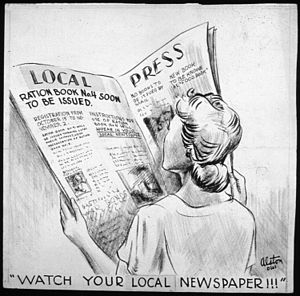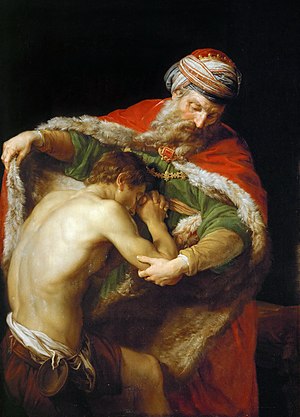by Kathy Brasby | Jun 21, 2013 | Hope
Although Esther in the Old Testament has a book named after her, the Bible portrays her as a hero who didn’t start out that way.
The book of Esther relates how the Jewish people, under a genocide order by a duped Persian king, were saved by insomnia and a reluctant queen.
Often we see Esther as a brave hero – and she was in the end. But her transformation is part of the story. She didn’t start out a hero.
Instead, she became queen through a king of beauty contest, at her uncle’s wish.
Her uncle, Mordecai, is the hero of this story and Esther is the person transformed. Mordecai was courageous and concerned about others. Not only did he want to protect the Jews, but he saved the king’s life at one point.
Esther, once brought into the king’s palace, remained rather anonymous. The court people did not realize she was a Jew, which indicates that she probably did not hold to a kosher lifestyle. When the news of the order against the Jews came to her ears, she didn’t do anything.
Mordecai prompted her to approach the king and she, at first, hesitated. When she learned of Mordecai in sackcloth, she told him to stop mourning.
But then she learned of her people’s problem and she, in an amazing character transformation, grasped her destiny.
When Esther decided to act, she revealed the courage and character that she needed to complete her destiny. But she didn’t step forward in giddy confidence. “If I perish, I perish,” she told Mordecai.
God is never mentioned in the book of Esther. Even when Esther asks for “fasting,” we wonder why she didn’t ask for “prayer and fasting.”
But the providential events – from a shy but beautiful Jewish girl being selected as queen of Persia to a king who couldn’t sleep and instead was reminded of Mordecai’s kindness to him – signal something amazing going on behind the scenes.
In our storytelling economy, we would have placed the brave and wise Mordecai in a position to save the people. We would not have chosen a quiet queen content to hide.
(Esther’s name in Hebrew could be Mistar, related to mystery and similar to I am hidden.)
Yet this non-hero stepped up when called upon, providing victory and salvation to the Jews.
The Bible relates the stories of non-heroes with stunning results.
Like this:
Like Loading...
by Kathy Brasby | Jun 17, 2013 | Hope
I know you know where chocolate milk comes from and that red cows don’t produce strawberry shakes.

Cow Holstein (Photo credit: Wikipedia)
But rural people often laugh at the misconceptions that non-rural people have. Some of the simpler wrong notions include the idea that black cows give chocolate milk or that bulls have horns and cows don’t.
And it is frustrating to hear people comment that we don’t need to have all those dairy cows because people can get their milk from Safeway instead.
I once had a college roommate mock me because I didn’t know that buttermilk came from stirring melting butter into milk. The fact that I had seen buttermilk in the actual making of butter in a churn didn’t impact her at all.
But one of my favorite stories came when a non-rural family came to visit.
“Can we come over this evening and watch you milk your goats?” This phone call came from our neighbor who had weekend guests wanting to experience some rural flavor.
So they came. The neighbor brought a dad with two teenage boys. The dad, Jim, had experienced a slice of farm life from his days visiting his grandparents on their farm. So this was warm nostalgia for him.
Not so much for the teenage boys.
They were willing to wander around outside pestering the ducks before Dad ordered them into the milking room.
“This is cool,” he said. “Get in here and watch.”
So I milked and answered questions from Jim while the boys leaned against the far wall with their hands in their pockets. Then they all went home.
My neighbor called me the next morning. “Jim said thanks for letting them come over.” And she laughed. “And the boys came back here to announce that, after seeing where milk came from, they are never drinking milk again.”
“Whew,” I said. “Good thing they don’t know where eggs come from, then. They might never eat again.”
Like this:
Like Loading...
by Kathy Brasby | Jun 14, 2013 | Hope
The book of Jonah contains some amazing structure, showing the author did more than just write down what happened. He structured a story that carried an unexpected meaning.
Let me explain something of the structure. The book has four chapters. Chapters 1 and 3 parallel each other in interesting ways. The same for chapters 2 and 4.
Many readers, however, tend to skip chapter 4 assuming the meaning of the story was landed by the end of chapter 3.
Let’s take a closer look.
The story in ways is a simple one. Jonah is a prophet of God who is told by God to go to Nineveh. Nineveh is the hated enemy of Jonah’s people and so he refuses, choosing instead to try to run away from God by booking passage on a ship in the other direction.
When a storm rages, the sailors of the ship look for a cause. Jonah admits that his disobedience has probably caused the storm and insists that they throw him overboard. They eventually do and Jonah is rescued when he’s swallowed by a giant fish.
During the three days he’s in the fish, Jonah has time to acknowledge God’s mercy in rescuing him. After he is thrown onto the shore, Jonah goes to Nineveh, preaches the message God gave him, and watches the Ninevites repent.
If we stop there, at the end of chapter 3, the book seems to be a story about how obedience produces good results.
But chapter 4 includes yet another twist, because Jonah sits on a hill outside Nineveh and sulks, hoping God will still destroy the city.
Chapters 1 and 3 both deal with pagans encountering God. In chapter 1, the sailors worship many gods but eventually, after throwing Jonah overboard (very unwillingly, for they fear this God who can whip up such a storm), worship God on the shore because the storm halted. These pagans recognize God’s hand in preserving their lives.
In chapter 3, the Ninevites hear Jonah’s warning and recognize God’s hand. They change their ways, repenting and asking God to relent.
The pagans recognize God’s sovereignty.
In chapters 2 and 4, the story centers more on Jonah’s dialogue with God. In chapter 2, he is grateful for God’s rescue and compares himself to those who cling to worthless idols. According to Jonah, they turn away from God’s love for them while he recognizes that salvation comes from the Lord. These prove to be empty words and Jonah’s attitude is revealed in the final chapter.
In chapter 4, he complains. “I knew you are a gracious and compassionate God, slow to anger and abounding in love, a God who relents from sending calamity.” Then he declares that it would be better to die than see God extend mercy to Jonah’s enemies.
Although, in chapter 2, God does not answer Jonah, he does so in chapter 4. God first sends a vine to shade Jonah and then sends a worm to kill the vine. God says, “Is it right for you to be angry about the plant?”
Jonah declares he’s so angry he wishes he were dead. He cares more for a vine than for the people of a city.
And the story ends with God’s statement. “Should I not have concern for the great city of Nineveh?”
Through the parallelism of the chapters, the reader is pushed beyond simply seeing Jonah as the repentant prophet. Instead, the structure shows that our author intended us to focus on God’s nature.
Although Jonah wants to limit God’s compassion to a narrow group of people, the reader is shown that God’s grace and mercy extends to all. Those who recognize God receive his kindness.
Structure gives us the tool to uncover that meaning.
Like this:
Like Loading...
by Kathy Brasby | Jun 10, 2013 | Hope
Assumptions are amazing things that can snag our ankles like runaway vines just when we think we’re getting up a head of steam.
In small towns in rural America, reputation still counts. And this story is about an assumption tromping on a reputation.

(Photo credit: Wikipedia)
Charlie had lived his entire life in this small town and had a little house with a backyard that didn’t concern Charlie much. He cared more about having coffee with his buddies and strolling the hardware store.
After a nice rain followed by some warm days, Charlie got a ticket from the city for the mess of weeds in his back yard. His town officials didn’t look kindly on his yard, which needed some mowing and hoeing and pulling.
In small towns, those kinds of tickets always show up in the newspaper’s report of the police activities. A cub reporter would be assigned to visit the police station and write up the tickets.
The column was popular in a town where the big news consisted of the school board budget meetings. After a yawner like that, the readers liked to peruse the police news to see what their neighbors had been up to.
Charlie braced himself for the ribbing he’d get after the latest issue hit the streets.
But the cub reporter writing up the police news was perhaps a little too fresh out of college for he saw “weeds” and wrote “marijuana.” So the news article announced that Charlie had been ticketed for raising a bunch of marijuana out back.
Let’s just say that Charlie’s embarrassment took a turn toward the possibility of owning a nice share of the local newspaper.
Assumptions are amazing things, aren’t they?
Like this:
Like Loading...
by Kathy Brasby | Jun 7, 2013 | Hope
A few years ago, I was involved in a nonprofit fundraising event. In previous years, the director had presented the budget, the needs and the annual giving – the facts.
But this time, we convinced her to contract a short video which captured a slice of the non-profit’s work. Tears flowed and contributions were nearly double over the year before.

Kunsthistorisches Museum (Photo credit: Wikipedia)
Emotion is the way to connect with people.
Jesus, the master storyteller, used stories – parables – connect his meaning with his listeners. Many of his parables have forged their way into popular culture.
Many are familiar with the Prodigal Son, the Good Samaritan, the Lost Lamb. All parables.
What did Jesus use in his parables that worked so well and have made his stories timeless?
He zeroed in on metaphors. His meaning came through the story itself like meaning comes through a painting or beautiful music.
The old adage that a picture is worth a thousand words plays into our understanding.
Jesus’ parables were extended metaphors. They didn’t illustrate an idea; they created a reality.
In our culture today, we use metaphors which might be mysterious to another time and culture. For example, I had a high-speed internet sort of day, with information and contacts zooming by me.
What would that have meant to my 1890 immigrant grandfather? Or to Plato or Socrates?
Another intriguing comparison would be a visual metaphor which our modern technology allows us to use. A familiar example could be an advertisement which juxtapositions a photo of a sports car with that of a panther. We compare qualities such as speed and power.
My point is that metaphors often play within history. To understand Jesus’ parables – his metaphors – we need to study his historical context.
In the Prodigal Son parable, for example, the story gains a new depth of meaning when we understand more of the historical context. In the Middle East, a young man asking for his inheritance while his father was still alive, was really saying, “Dad, why don’t you drop dead?” The father would be expected to get angry, slap his son, and drive the young man from his presence.
None of those things happened in the parable.
Jesus’ listeners would have been intrigued by the alternate tale. We can understand the son’s decision to go home and work as a servant in that context. But why didn’t the father react as expected? He allowed the son to leave and he celebrated the son’s return. Jesus’ meaning included restoration rather than revenge, welcome rather than division.
By use of a story, Jesus presented an alternative to driving away a prodigal. In this parable, the father instead celebrated the return of a beloved son. “We had to celebrate and be glad, because this brother of yours was dead and is alive again; he was lost and is found.” (Luke 15:31-21 NIV)
The emotions generated in this parable, through storytelling and metaphor, created a connection to Jesus’ audience and emphasized his meaning.
Like this:
Like Loading...
by Kathy Brasby | Jun 3, 2013 | Hope
I’m not a big fan of car commercials because I really don’t think the right car will give me peace, bring my family closer together, or define my sophistication index.
But I do like to tell car stories. Like this one.

(Photo credit: Wikipedia)
We were filling our car at a little gas station in Omaha when we noticed a guy pushing his car up the driveway of the station. He was a skinny young guy but he handled his rig like he’d done this before.
He had a faded tank of a car that gulped gas and apparently had run dry somewhere nearby.
All the pumps were occupied so he guided his old vehicle to the curb and waited. Finally a spot cleared and he walked confidently to the front pumper, bent low, and heaved.
The car rolled like a lumbering ox to the open pump.
By this time, we were pretty sympathetic for this man who seemed to have had a touch of bad timing, running out of gas so close to the station. He settled his car by the pump like a mother tucking in her toddler and pulled out his wallet.
That pump allowed bills as well as credit card payments and so we watched as he tugged $5 out and slid it into the pump.
He pumped his gas – almost two gallons in those days – tightened the gas cap, and drove away. I knew then why he rolled his car with such confidence. He had done it before.
He reminded me of a guy we knew who wanted to borrow some money to buy gas.
Yeah, he’d gotten his paycheck but his pickup had two fuel tanks and the switch between the two tanks didn’t work. So he’d blown his week’s paycheck installing a new switch so that he had access to two fuel tanks rather than one.
Then he had no money for gas.
Could we help? We didn’t.
And then there was the gal who complained that she had to buy a radar detector. “And they’re expensive.”
“Why did you have to buy a radar detector?” I asked.
Her look made me wonder if I’d sprouted Martian antenna. “My tire has a slow leak.”
“Huh?”
“If I don’t speed, I can’t get home from WalMart before the tire goes flat. So I had to buy a radar detector.”
I checked to see if she had sprouted Martian antenna. I also wondered how a new tire compared to the cost of a radar detector.
For some people, their car defines their image. For others, their car just reveals it.
Like this:
Like Loading...





